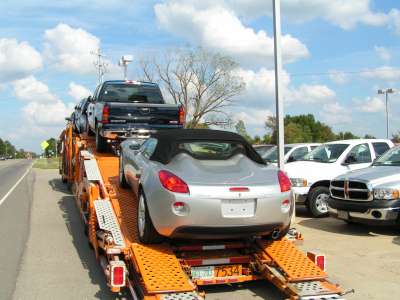With the deadline for CPC training looming, understanding the needs of companies operating a fleet has never been more important. Finding the right training for all members of staff, no matter what their role or what vehicle they may be using, is going to be extremely important and not only might CPC training be necessary, but there may be other forms of training that specific drivers should be given access to if they are to carry out their jobs effectively (and, in many cases, legally).
However, whilst raising awareness about effective driver training is going to be extremely important for any business operating a fleet, no matter how large or small, such awareness is also likely to be important for those not in such an industry.
PUBLIC AWARENESS
Whilst those completing driver training courses will have a very thorough knowledge of the laws governing HGVs on the road, the public as a whole are unlikely to know much, if anything, about such laws. Furthermore, even many of those working alongside HGV drivers may not be aware of specific procedures that need to be followed and in turn certain issues may be encountered before drivers even start their engines.
From the road rage and safety issues that can accompany the following of a slow lorry, to the way in which lorries may be prepared prior to leaving a depot, there are many instances in which safety can be compromised by a lack of knowledge, and whilst informing drivers of their responsibilities and imparting relevant skills accordingly will be extremely important, boosting public and colleague awareness will also be very necessary.
SPEED LIMITS FOR HGVS
Many people are unaware that the speed limit on public roads is very different for different vehicles. Even a huge proportion of skilled and manual workers are unaware of the different speed limits for trucks, whilst only 19% of the public as a whole appear to be aware that the speed limit for a heavy goods vehicle on a single carriageway is 40mph.
In turn, rather than accepting that slow lorries are merely sticking to the legal speed limit, many drivers get frustrated, leading to road rage or dangerous manoeuvres. Many of these increasingly common incidents could be avoided by simply educating the public more effectively.
Companies that source driver training may well be best placed to help educate individuals. By displaying information about the laws governing HGVs on the road, not only will non-driving staff be more likely to prepare vehicles appropriately, but they are also going to understand speed limits for such vehicles when out on the road themselves. From here, they will almost certainly pass on such knowledge to others.
Educating the public about HGV speed limits and driving laws may be almost as important as ensuring drivers stick to these laws and are trained in the most effective manner. With CPC training now a mandatory requirement, there has never been a better time to educate the public and in turn keep both lorry drivers and the general public safer than ever on our roads.
About the Author – Adam Howes is a freelance writer and blogger. He regularly contributes articles to transport training sites, consulting websites such as www.dw-training.co.uk to stay up to date with all the latest industry news and developments.




